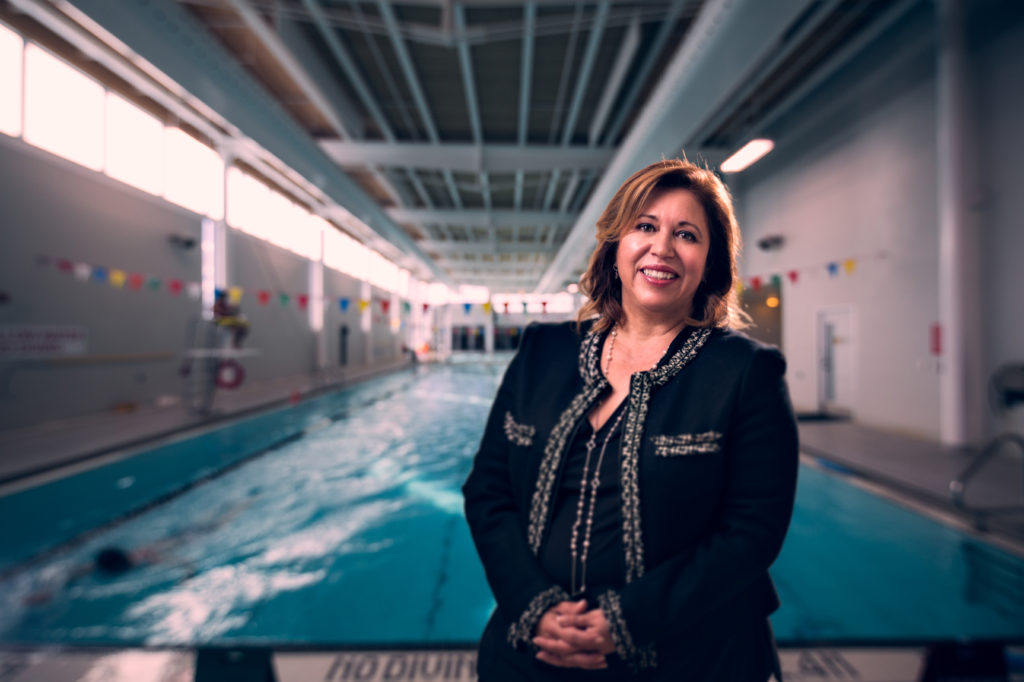
Pre-surgery program for better post-surgery results
Age hasn’t slowed Annette Atwood down. She’s never been one to sit around in front of the TV, even now in her 70’s, unless perhaps if Wimbledon is on.
When she started to notice a dull constant pain in her hip, she chalked it up to getting older. But when her hip started to frequently give out causing her to fall, she realized it was more than just old age. Annette was in need of a hip replacement.
Being the outgoing person that she is, Annette wasn’t going to let the wait for surgery slow her down. She still went out and about, making sure to always bring a walker or cane with her.
“It’s not just about ensuring our patients get the surgery they need, but ensuring it improves their quality of life.”
When she went for an appointment with her surgeon, he told her about a research study called Fit Joints that’s exploring whether participation in a pre-surgery program, which includes exercise, nutrition, medication review and goal setting, can help patients undergoing hip and knee replacements recover better. It’s well-known that the healthier a person is before surgery, the more likely they are to have a positive outcome. Researchers at the Geriatric Education and Research in Aging Sciences (GERAS) Centre of Hamilton Health Sciences (HHS) and McMaster University are applying that same concept through the Fit Joints study.
“Since many patients in need of hip or knee replacements are frail, surgery may not be as effective,” says Dr. Alexandra Papaioannou, geriatrician at HHS, executive director at the GERAS Centre and Fit Joints study lead. “But, there’s growing evidence showing that frailty can be treated through proper diet and exercise. This means our study could not only better prepare our patients for surgery, but also improve their frailty and reduce their chance of falling. The goal is to help patients get back to the life that they enjoy.”
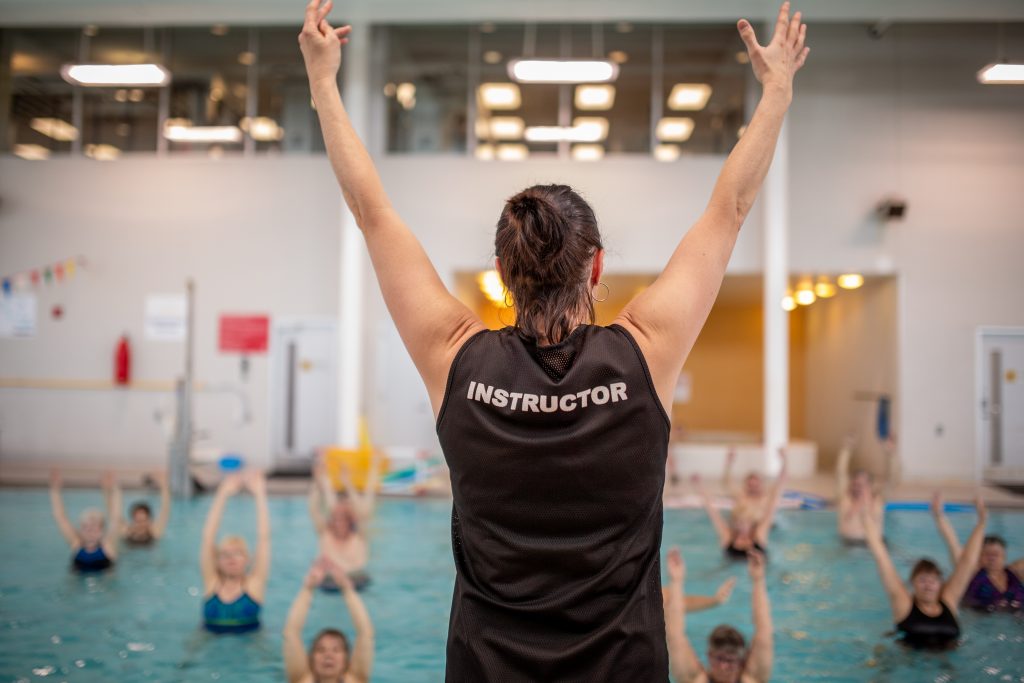
Study participants are given an exercise plan, a food intake log and vitamin D and protein supplementation. With help from the Les Chater YMCA, participants can attend aquatic classes and receive coaching in the gym. They’re also given gentle exercises to complete at home. Since it’s a fairly big change for people who don’t exercise regularly, study coordinators provide ongoing guidance with monthly home visits. The program continues as long as patients have to wait for their surgery.
“As healthcare providers, it’s not just about ensuring our patients get the surgery they need, but ensuring it improves their quality of life,” says Dr. Papaioannou. “Regardless of the complexity, surgery can be hard on the body. So, we’re hoping this program can help patients’ recover well and enjoy the benefits of their new hip or knee.”
If the study is successful, the team at the GERAS Centre hopes the program can become a routine part of care for all joint replacement patients across Ontario.
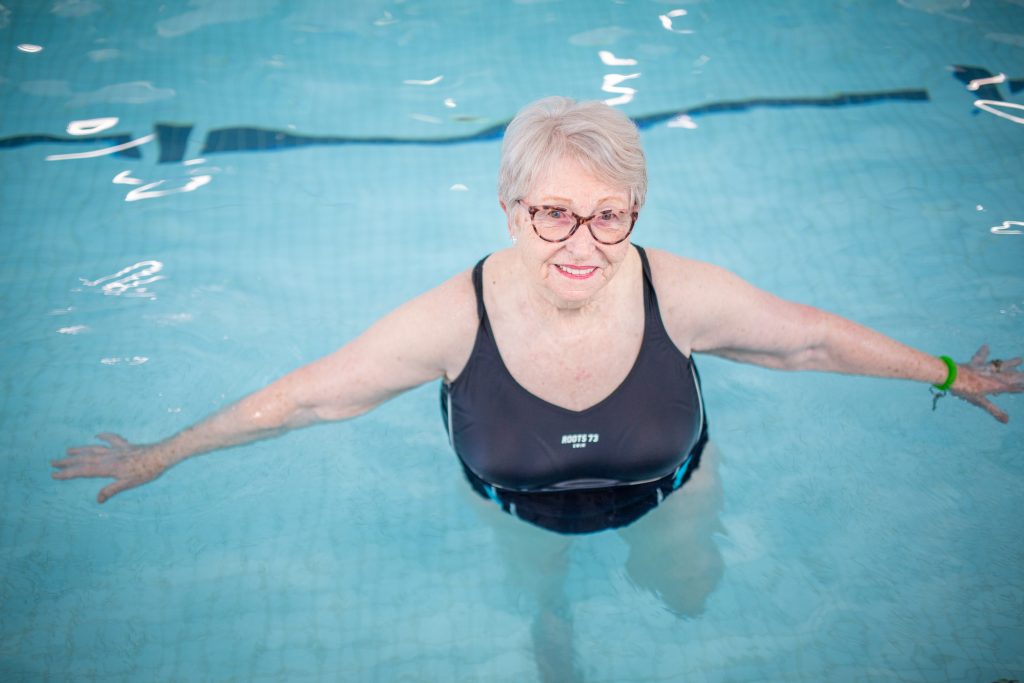
As for Annette, one year post hip replacement, she’s still swimming at the YMCA twice each week.
“I loved the program as soon as I started it before my surgery,” she says. “But now, it’s not just exercise, it’s a social outing.”
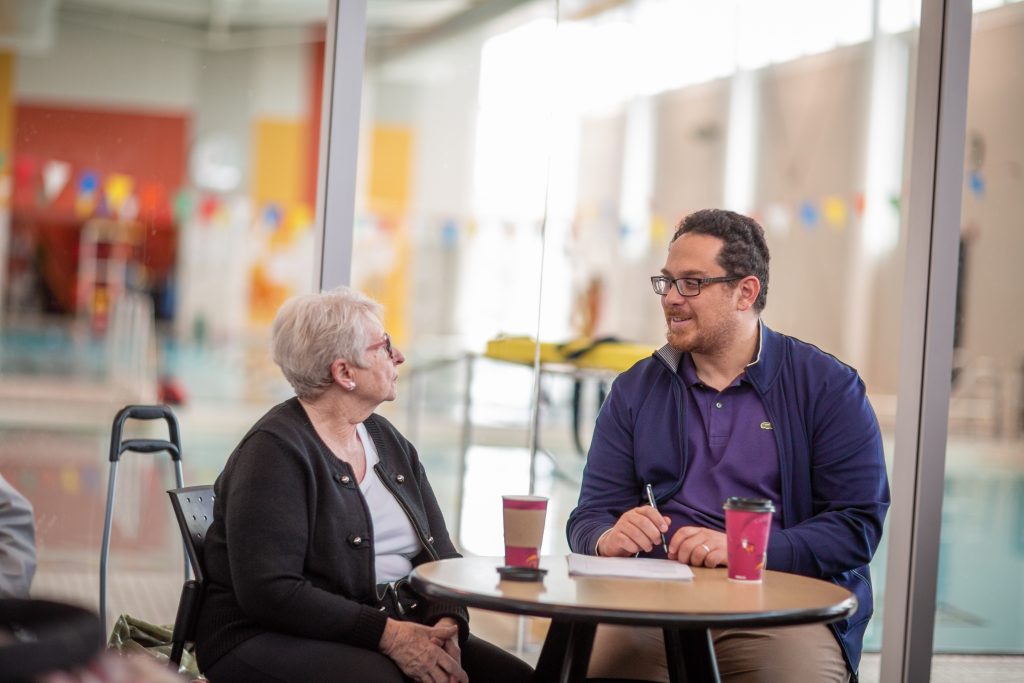
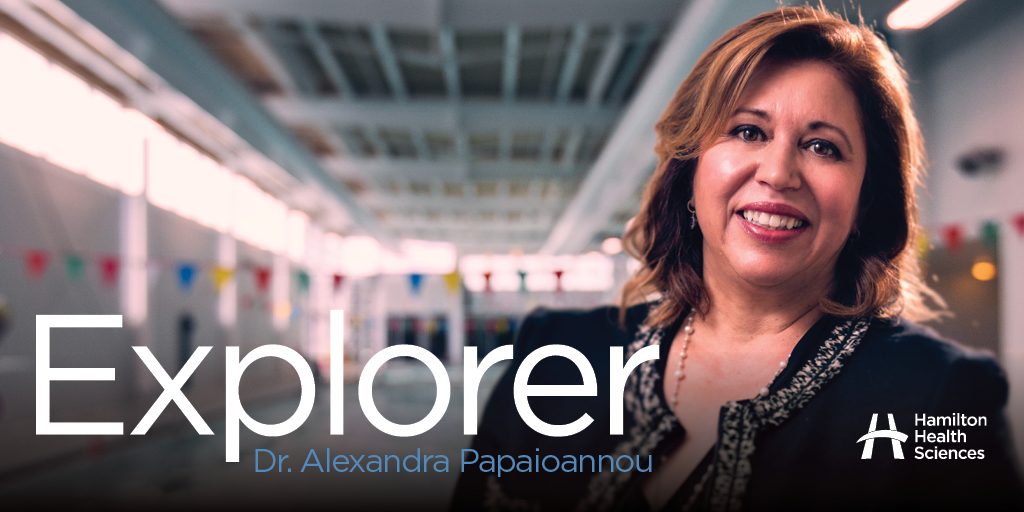
Research at Hamilton Health Sciences is conducted in partnership with McMaster University.
